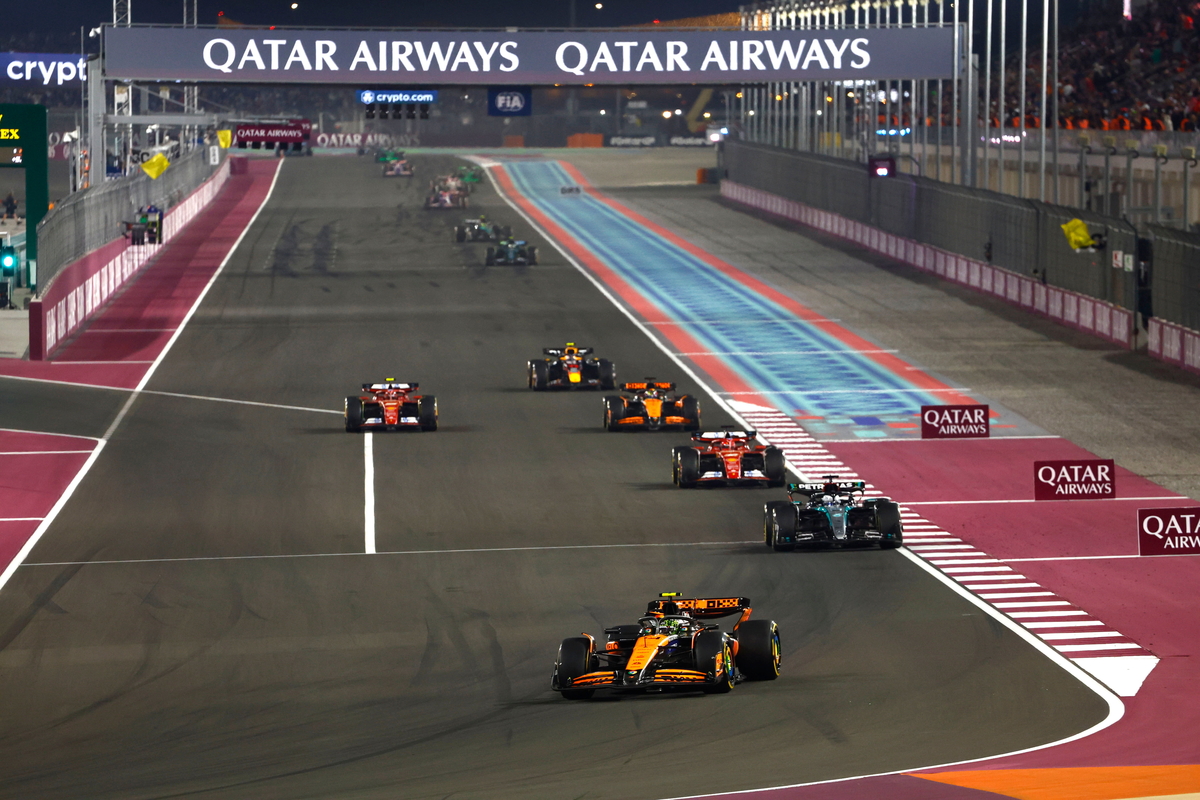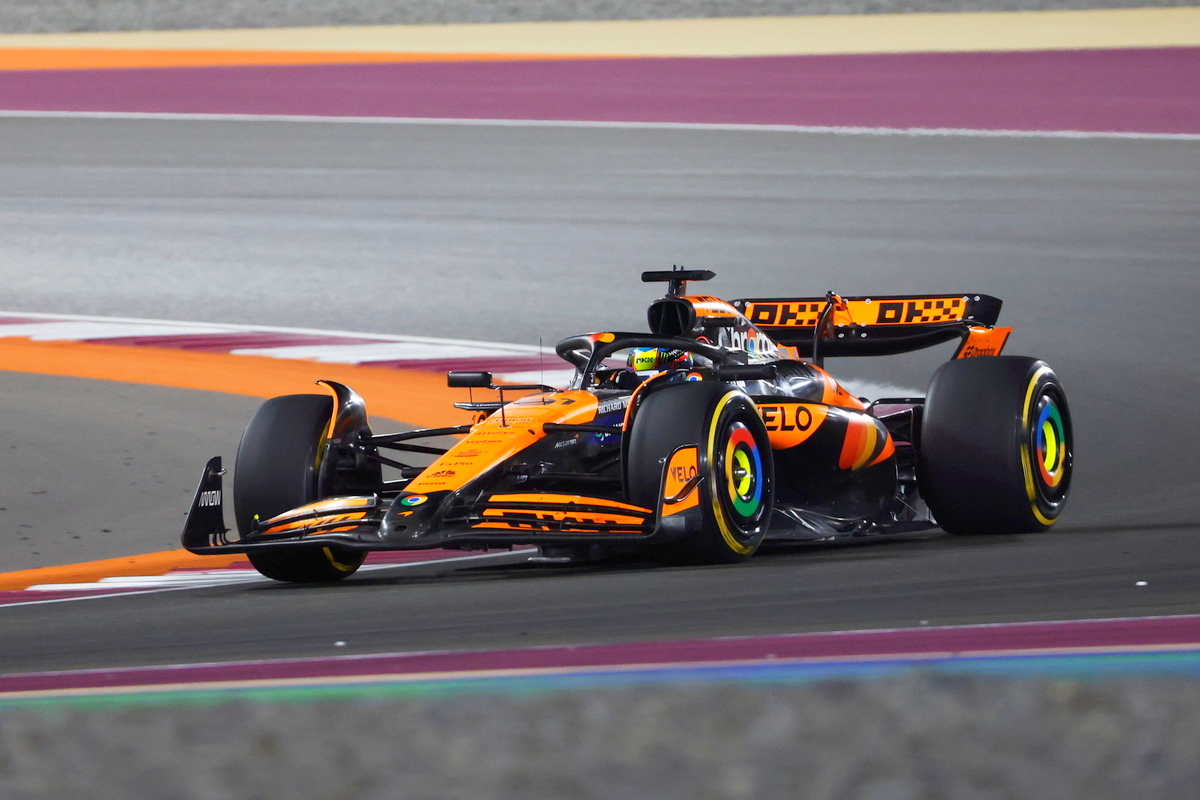
McLaren team principal Andrea Stella believes that F1’s stewards have lost "any sense of proportion and any sense of specificity" in how they assess incidents on the track.
Stella vented his frustrations after last Sunday’s Qatar Grand Prix in which Lando Norris was hit with a 10-second stop-and-go penalty for failing to slow on the main straight under double-waved yellow flags.
The McLaren driver, who had been battling for the lead with Max Verstappen, found himself relegated to the back of the pack after serving his punishment but managed to recover to finish tenth and set the fastest lap.
Nevertheless, the sanction derailed not only the Briton’s race but also McLaren’s bid to secure F1’s Constructors’ Championship with one race to spare.
Commenting on the incident, which was caused by scattered debris on the track, Stella admitted that Norris had indeed failed to slow, as confirmed by the team’s telemetry.
“We checked the data – effectively, Lando stays flat out,” Stella told Sky Sports F1. “We have to say that the sector appeared yellow as soon as Lando had entered the sector, but the requirement is very clear.
“You need to lift and it is the responsibility of the driver to recognise that you are in a yellow sector and you need to back off.”
However, Stella also questioned the context and consistency of the stewards’ decision. He noted that the yellow flag was removed shortly after being deployed, even though the conditions on the track remained unchanged.
“At the same time, I think it’s quite peculiar that the yellow flag was deployed and then was removed, but actually the situation in that sector was the same – there was debris on track.”

Stella’s primary criticism lay in the perceived rigidity of the penalty. He argued for a more nuanced approach that considers the specific circumstances of each incident.
“I think in the application of the penalty, I think we have lost any sense of proportion and any sense of specificity.
“Can we look specifically at the infringement, at the level of danger associated to the situation and in fact the yellow flag was removed, and then judge using these kinds of elements – proportion and specificity – rather than taking a look at any kind of rulebook probably full of dust on top of it, and then apply it without any sense of critical approach?”
Despite the setback, McLaren walked away from Qatar with a podium finish courtesy of Oscar Piastri, who finished third despite losing a position to Charles Leclerc due to a Safety Car intervention.
Stella highlighted Piastri’s performance and the overall team effort in securing crucial points that maintain McLaren’s advantage over Ferrari in the constructors’ championship.

“[Piastri] did well in finishing on the podium – he actually lost the position because of the Safety Car, which gave an advantage to Leclerc, but this is a racing situation. Sometimes you gain, sometimes you lose with the Safety Car,” he said.
Stella reflected on the missed opportunity to close out the championship in Qatar but remained optimistic about their chances in Abu Dhabi.
“We missed a significant opportunity to close the matter,” he admitted, but added that the team “remains focused and determined to finish the job as a team.
With a 21-point lead over Ferrari, McLaren heads into the final race in Abu Dhabi holding the upper hand. While Norris’ penalty in Qatar was a bitter pill to swallow, the team is determined to finish the season on a high and clinch its first constructors’ title since 1998.
The lingering question, however, is whether Stella’s pointed critique will ignite discussions about how F1’s stewards apply penalties and whether a more tailored approach is needed in the future.
Keep up to date with all the F1 news via Facebook and X






